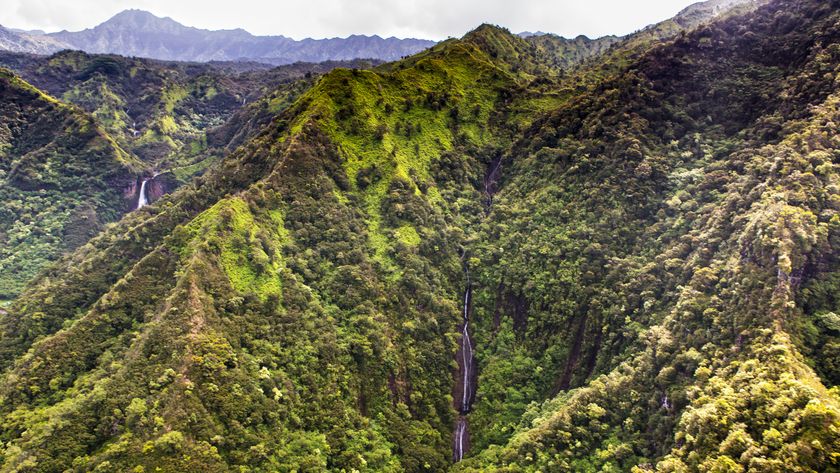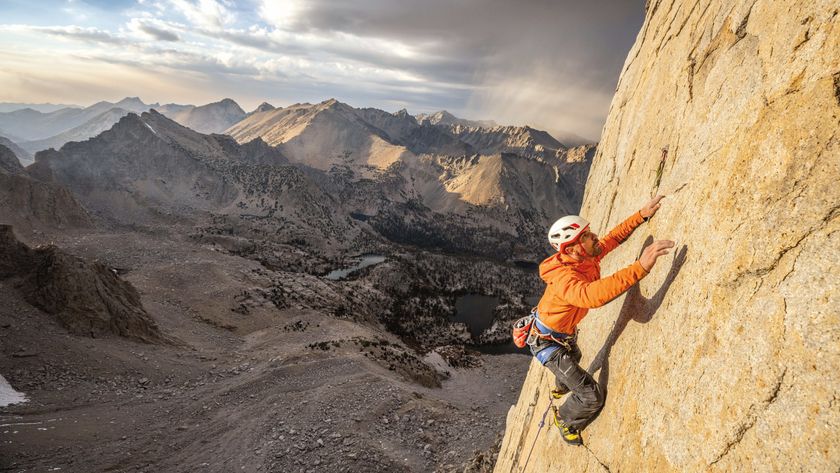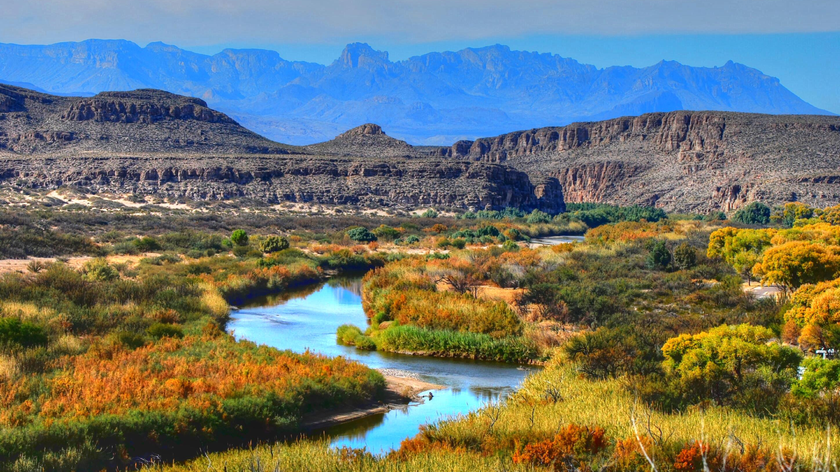Can great white sharks change color? Find out during Sharkfest 2022
We speak to the marine scientist at the center of a new shark documentary airing during Sharkfest 2022 on his groundbreaking new research on great whites
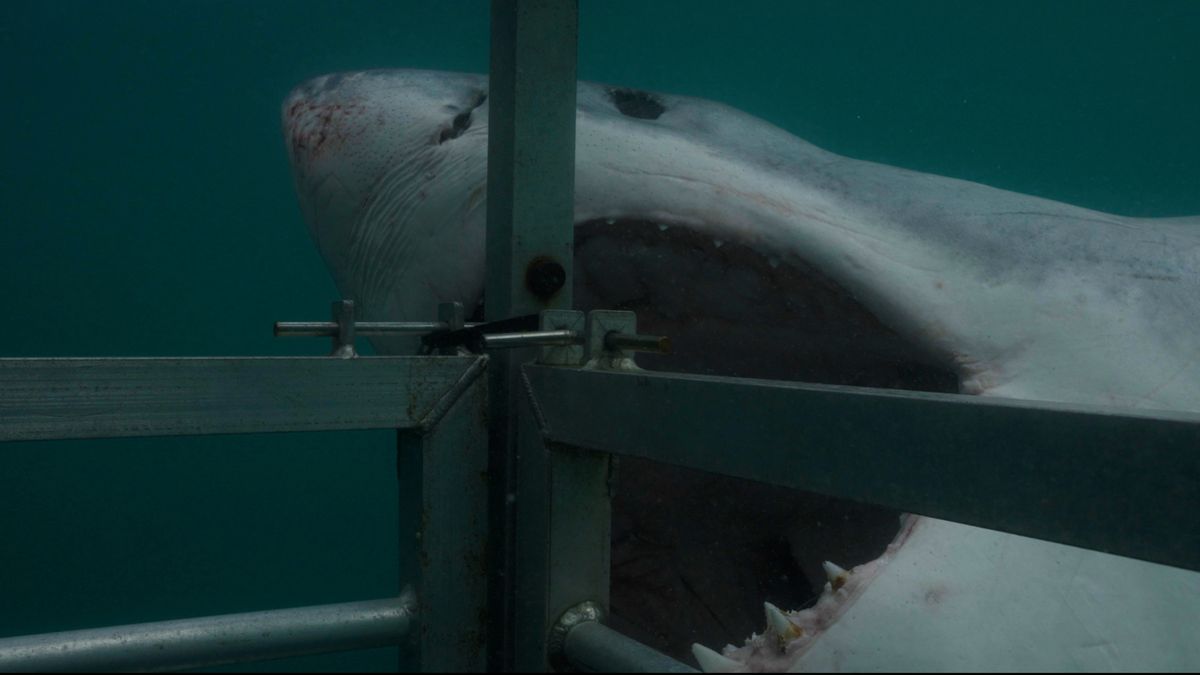
For 12 million years, the great white shark has been the ultimate predator. With three hundred gnashing teeth, growing up to 20 feet in length and weighing up to 5,000lb, these monstrous beasts are able to swim at speeds of 20mph and have enjoyed their seat at the top of the ocean’s food chain for millennia. But will climate change test their ability to survive? According to a new National Geographic documentary named Camo Shark, they might just have one more trick up their sleeves.
Can great white sharks change color in order to hunt? That’s just the question that marine scientist Ryan Johnson and shark geneticist Gibbs Kuguru set off to answer two and a half years ago with a project that has become the focus of the new 45-minute documentary, debuting during Sharkfest 2022. The pair have spent the last couple of years in the waters of Mossel Bay, South Africa observing great white sharks using a color board, and examining cellular samples in a lab trying to test their theory. We got to sit down with Johnson to discuss the project, and why this research matters.
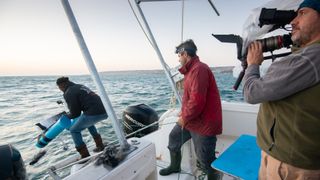
Johnson told us he started developing his theory that great white sharks change color in order to hunt four or five years ago, after decades of researching sharks.
“I’d always say to my colleagues, look at that shark, it’s changed color, but I always knew it could've been the clouds or the conditions, milky water or clear water,” recalls Johnson. It was only when he met Kuguru, who was doing his doctorate on blacktip reef sharks, which are color morphers, that he became determined to put his theory to the test.
“The real highlight was when that color board got it, and I knew that the shark had changed color during the course of the day. It’s one thing in the laboratory, but to actually have a great white shark swimming around you and actually knowing that it’s changed color right in front of your eyes is special.”
Though the preliminary findings are positive, more research is needed. However Johnson stresses that, if he’s right, the news bodes well for the great white’s survival in our rapidly changing ecological environment. After all, sharks play a vital role in balancing the ecosystem by maintaining the species below them in the food chain, and serve as an indicator for ocean health, which we all rely on. Rising water temperatures might force them deeper into the ocean to hunt, where they would be more conspicuous – unless they can change color.
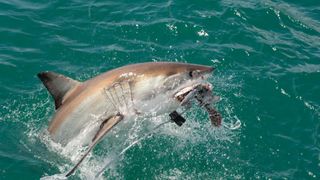
Johnson explains that you can roughly divide all species up into either specialist species or generalist species. While the former works within a very limited ecology and often can’t adapt quickly enough to meet the demands of massive climate change, generalist species have a brighter outlook.
Advnture Newsletter
All the latest inspiration, tips and guides to help you plan your next Advnture!
“If you are a species that has many different phenotypes, or ways that you can look, then you have a lot more options to be successful as a predator in a heck of a lot more different environments,” he explains.
So, what can we do with this information? Well for starters, we can enjoy it, according to Johnson.
“We can be fascinated and in awe of great white sharks because of it. Often the squids and the octopus take all the glow for their ability to manipulate the color and I think now great white sharks can jump on that bandwagon.”
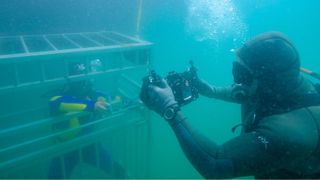
Further, it can fuel our sense of appreciation around sharks – creatures that have been given a bad rap thanks in no small part to Steven Spielberg. If you’re looking for Jaws-inspired terror and gore, Sharkfest will certainly deliver with events such as the ones where people try to survive sharks naked, and afraid, but educational documentaries like Camo Shark are an important part of the event’s content that can help us all appreciated the subtlety and intelligence of sharks, regardless of whether or not you spend your weekends casting for carp in wader boots.
“This can have a massive impact on how people view the great whites and sharks in general. If people watching Camo Shark and other shark documentaries can start seeing sharks as incredibly diverse, incredibly well-adapted to the environments, and far more than just the teeth and the gaping mouth, I think that is one of the big things that’s going to lead people to carry on with their fascination of sharks and extend their knowledge,” says Johnson, acknowledging the fact that, not being as (apparently) cuddly as the pandas that have made their way onto the WWF’s logo, sharks have historically been “a harder sell".
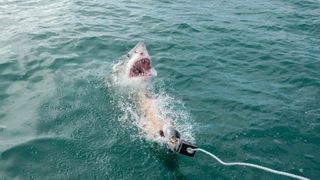
But he’s here to help change that. In addition to the nightmarish feeding frenzies you can scare yourself with in segments like Sharks Gone Wild, Sharkfest does serve an important ecological purpose: to get us on board with saving the sharks.
“If we as scientists can try to extend the knowledge to people, and entertain and inform with just how fascinating these sharks are, then I think that plays a big role in changing peoples’ perceptions or at least having people appreciate that sharks do have a place on this earth,” concludes Johnson.
Since it premiered in 1988, Shark Week has entertained and enthralled viewers with fascinating and bizarre information about sharks. Sharkfest 2022 kicks off on Sunday, July 10 on Nat Geo TV.
Julia Clarke is a staff writer for Advnture.com and the author of the book Restorative Yoga for Beginners. She loves to explore mountains on foot, bike, skis and belay and then recover on the the yoga mat. Julia graduated with a degree in journalism in 2004 and spent eight years working as a radio presenter in Kansas City, Vermont, Boston and New York City before discovering the joys of the Rocky Mountains. She then detoured west to Colorado and enjoyed 11 years teaching yoga in Vail before returning to her hometown of Glasgow, Scotland in 2020 to focus on family and writing.








